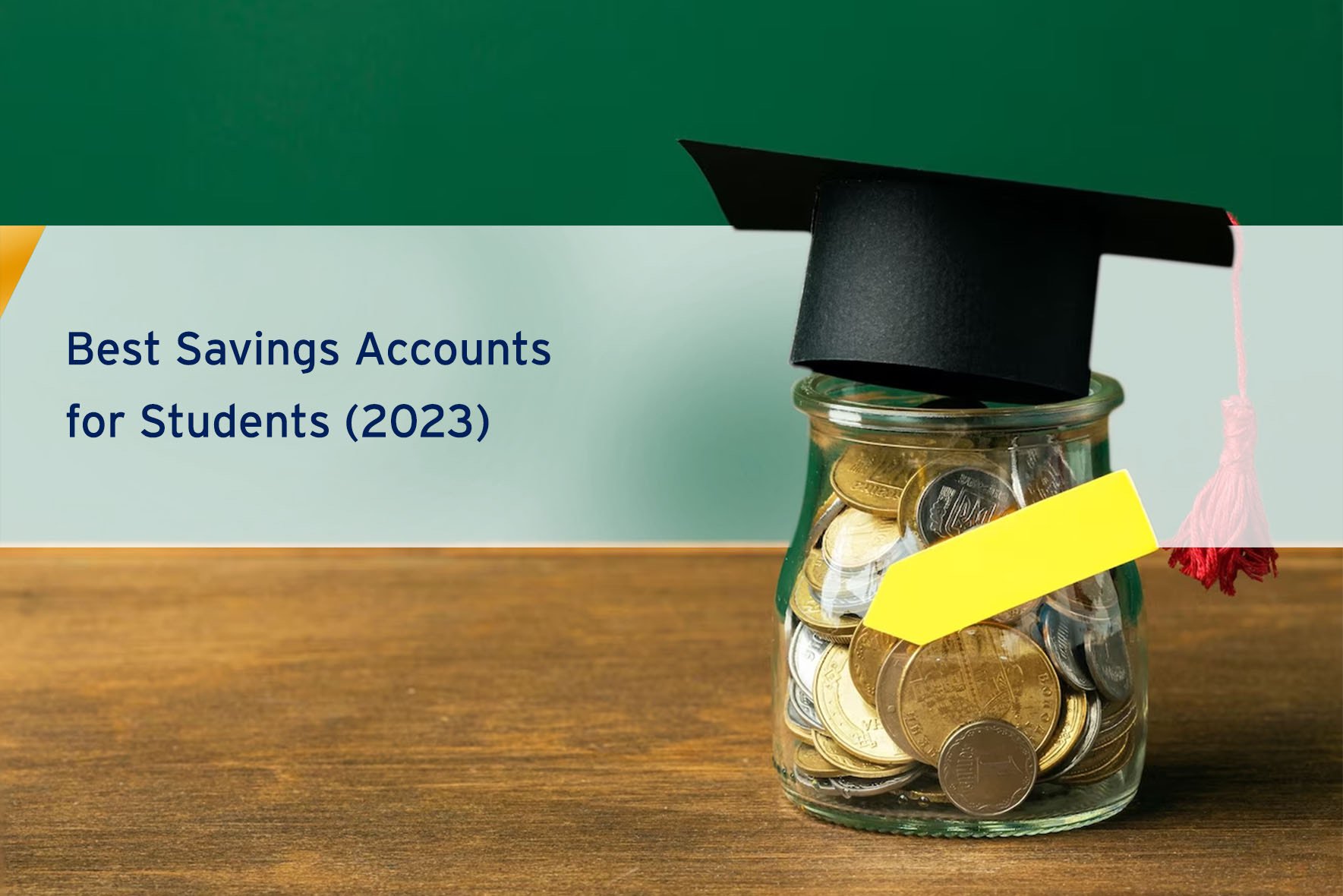
Best Savings Accounts for Students (2024)
Author Taiwo Temitope-Adesope
Learning how to save money as a student in Nigeria may seem like a difficult task, but rest assured knowing it's an easier endeavour than you might think. In this blog post, we will walk you through the essential steps to navigate the financial landscape effectively. From selecting the most suitable savings account that aligns with your unique requirements as a student, to implementing practical money-saving strategies.
This article aims to empower you with the knowledge and tools needed to build a secure and prosperous financial future while pursuing your academic goals.
As a student, saving money requires discipline and prioritization. By developing good saving habits early, students in Nigeria can find a balance between saving and enjoying their school experience.
In addition, saving money helps build a strong foundation for your financial future.
How to save money as a student
Saving money as a student in Nigeria can be challenging, but it's a valuable habit that can set you up for financial success in the long run.
Here are some tips to help you save money as a student:
● Minimize unnecessary expenses
As a student who intends to save money, look for ways to reduce unnecessary expenses .
Some of the money-saving tips you sound consider include packing your lunch instead of eating out and using public transportation or carpooling to save on transportation costs.
Also, be mindful of impulse purchases and think twice before making non-essential purchases.
● Take advantage of student discounts
Many businesses offer student discounts, so make sure to take advantage of them.
Always carry your student ID and inquire about available discounts when shopping, dining out, or attending events.
● Save on textbooks
Textbooks can be expensive, but there are ways to save on them. Consider buying used textbooks, renting them, or getting them from the school’s library. You can also look for digital versions.
● Cut down on entertainment expenses
As a student, the need to unwind cannot be denied but your entertainment expenses can add up quickly.
Look for low-cost or free activities, such as student organization events, campus activities, or exploring local parks and attractions.
Utilize streaming services instead of going to the movies or attending expensive concerts. In addition, you can share subscription fees with other students.
● Use student resources
Take advantage of the resources provided by your institution. Utilize the library for books, research materials, and free access to academic journals. Use campus fitness facilities instead of paying for a gym membership.
● Save on housing costs
If possible, consider living with roommates to share the rent and utilities.
Explore options for on-campus housing or student housing, which can often be more affordable compared to private rentals.
● Set savings goals
Setting specific savings goals can help you to stay motivated. It could be saving a certain percentage of your income each month or working towards a specific savings target.
Having clear goals will help you stay focused on your saving efforts.
Best Savings Accounts for Students in Nigeria
If you are a student in Nigeria, there are several savings accounts you can consider to help you manage your finances and save money. Here are some of the best savings' accounts for students in Nigeria:
1. GTBank GTCrea8 eSavers Account
GTBank’s GTCrea8 eSavers Account is designed specifically for students and offers a competitive interest rate.
The account can be opened with just N1,000 and offers features such as free mobile banking, internet banking, and ATM withdrawals.
2. Zenith Bank Aspire Account
The Aspire Account by Zenith Bank is a unique savings account for Nigerian undergraduates with a distinctive sense of identity.
Designed to enhance the lifestyle of the discerning student, the Aspire account provides a platform for its holders to follow their dreams, supporting them as they aspire to greatness.
The account offers a competitive Interest rate of 5.5%.
3. UBA Student Account
United Bank For Africa’s Student Account is for undergraduates aged 16 to 25. This account is designed to help students make the most of their money.
The UBA Student Account holders can choose from any of the bank’s custom card products for easy payments on e-channels, enjoy unlimited free Wi-Fi at select UBA campus branches and stand a chance to participate in the UBA campus ambassador program.
4. First Bank XploreFirst Savings Account
First Bank’s XploreFirst Account is for individuals between the ages of 18 – 29 years or students of any of the tertiary institutions.
The account offers students a chance to win up to N150,000 Naira in scholarships at a raffle draw by maintaining an average account balance of N10,000 for six months.
An XploreFirst account can be opened with a valid student Identity card with a copy of the school admission letter attached.
5. Sterling Bank TribeOne (Campus Hype Account)
Sterling Bank’s TrybeOne Account is for students between the ages of 16 and 25 years.
With a zero-account opening balance, it offers lower transaction fees alongside all other freebies associated with the account. The account comes with a minimum opening balance of N1,000 a daily minimum balance of Zero as well as a competitive interest rate of 1.25% p.a. It also allows lodgement of cheques and dividends up to N2 Million limit per day.
When choosing a savings account as a student in Nigeria, it's essential to consider factors including.
- Interest rates
- Fees and charges
- Accessibility
- Minimum balance requirements
- Online and mobile banking features
- Customer service
By considering these factors when selecting a savings account in Nigeria, you can choose an account that best meets your financial needs and goals.
Requirements for opening a student’s savings account
The requirements for opening a savings account for students in Nigeria are almost the same for most banks.
The documents required include.
- Account opening form duly completed.
- One recent clear passport photograph of the signatory.
- School Identity Card, Admission Letter or valid Means of Identification (NIN, Driver's License, Nigerian Passport, Voter's Card).
- Details of parents or guardians for students aged 16 to 25 years.
Why students should save money
There are several compelling reasons why it is essential to learn how to save money as a student. Here are some key benefits of saving money as a student:
● Emergency fund
Saving money allows students to build an emergency fund. Having a financial cushion can provide peace of mind and helps you focus on your studies.
● Future expenses
Students should consider saving for future expenses, such as further education, graduate school, or starting a business.
By setting aside money regularly, students can reduce the need for loans or borrowing in the future.
● Financial independence
Fostering financial independence is an important part of developing financial literacy. Saving money allows students to cover their own expenses, such as textbooks, school supplies, transportation, and personal expenses, without constantly relying on others for financial support.
● Long-term goals
Saving money enables students to work towards their long-term goals.
Whether it's travelling, purchasing a car, or saving for a down payment on a home, having savings provides the resources to achieve these goals.
● Financial security
Developing a sense of financial security as a student cannot be overlooked. Saving money helps students develop healthy financial habits, learn budgeting skills, and avoid unnecessary debt, thereby creating a stable financial foundation for the future.
● Building Wealth
A part of the foundation for building wealth over time is saving money. By consistently saving and investing, students can take advantage of compounding interest and create a strong financial future.
Encouraging students to save money is a valuable lesson that can provide them with financial security, independence, and opportunities for their future endeavours.
If you are interested in saving money as a student, you can take advantage of some of the tools provided by nairaCompare to start off.
About Author

Taiwo Temitope-Adesope
Taiwo is a passionate storyteller and strategist dedicated to empowering women and crafting compelling narratives. A First-Class graduate in Mass Communication from Covenant University, she specializes in writing, public relations, and digital marketing. As a Content Manager at Suretree, she drove a 50% increase in web traffic through SEO and boosted website engagement by 60% in just four months. Her leadership experience includes serving as Public Relations Officer for the Covenant University Student Council and contributing to impactful volunteer initiatives. With expertise in strategic thinking and business acumen, Taiwo continues to create stories that inspire confidence and imagination.









